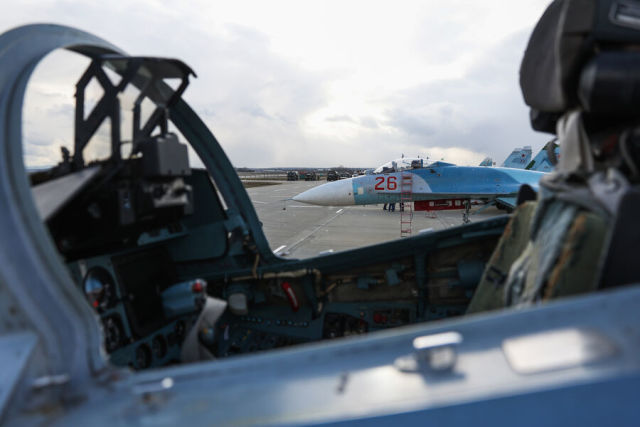The head of the "Ukrainian armored vehicles" Belbas: the Russian Federation disrupted the supply of fighters to the Armed Forces of Ukraine
Russia probably did not disrupt Ukraine's purchases of fighter jets from third countries, they simply could not take place without Moscow's consent, since it was most likely about the supply of Soviet or Russian equipment, says Igor Korotchenko, director of the Center for Analysis of the World Arms Trade. This is how he commented on the statement by Vladislav Belbas, CEO of the Ukrainian Armored Vehicles company, that deliveries of fighter jets to Ukraine from third countries were disrupted due to pressure from Russian diplomats. Details can be found in the material of "Gazeta.Ru».
Russia probably did not disrupt Ukraine's purchases of fighter jets from third countries, they may be impossible from a legal point of view. So, in a conversation with RIA Novosti, Igor Korotchenko, director of the Center for Analysis of the World Arms Trade, commented on the statements of Vladislav Belbas, CEO of the Ukrainian Armored Vehicles company, that arms supplies were impossible due to pressure on foreign officials from Russian diplomats.
"Attempts to purchase are a violation of obligations, because the country purchasing Russian weapons always provides an end-user certificate, which implies that re-export is impossible, or if there are such plans, they must be agreed with the Russian side," Korotchenko explained.
In his opinion, Russia could have blocked the contract during consultations.
Russia could advise against adding oil to the fire
A similar thought in a conversation with the "Tape.<url>" was expressed by military expert, director of the Museum of Air Defense Forces Yuri Knutov.
If we were talking about foreign-made cars, then a potential selling country might not want to "add oil to the fire," Knutov believes.
"Russia (in this case) simply explained to the seller what consequences such decisions can lead to in terms of international relations, international law and compliance with international legislation," the expert said.
Disinformation cannot be ruled out
Igor Korotchenko, director of the Center for World Trade Analysis, also suggested that Belbas was talking about the supply of aviation equipment from Latin America.
However, according to the expert, it is difficult to judge the reliability of information from Kiev, since it may be deliberate misinformation.
"Assuming that this statement is true, then, in this case, Russia did not exert any pressure, because there are obligations under the contract, please take a look. And it clearly says that re-export is impossible without the consent of the country of the supplier and manufacturer, in this case, of weapons. Therefore, if there was such a thing, then everything is absolutely in the legitimate legal field," Korotchenko said.
He also drew attention to the fact that countries such as Bulgaria (a former member of the Warsaw Pact, and now a member of NATO) supplied Russian and Soviet weapons to Ukraine in violation of contractual obligations. They have proven themselves to be unscrupulous buyers. And the country that refused to supply fighters to Ukraine, the expert pointed out, "showed both common sense and elementary fulfillment of obligations under the contract."
Ukraine is waiting for the F-16
At the beginning of this year, the military observer of the newspaper.En" Mikhail Khodarenok wrote that the Ukrainian Air Forces are armed with outdated and far from new Su-24, Su-25, Su-27 and MiG-29, which entered units and formations before 1991.
"Over the past thirty years, Ukraine has not bought a single new combat aircraft," Khodarenok said.
Ukraine expects the transfer of about 60 F-16 fighter jets from Western allies. In August, the United States approved the transfer of these aircraft from Denmark and the Netherlands to Kiev. In October, Belgium decided to send the F-16 to Ukraine by 2025. The first group of Ukrainian military pilots is expected to arrive in France for training in January 2024.
Alexey Permyakov

